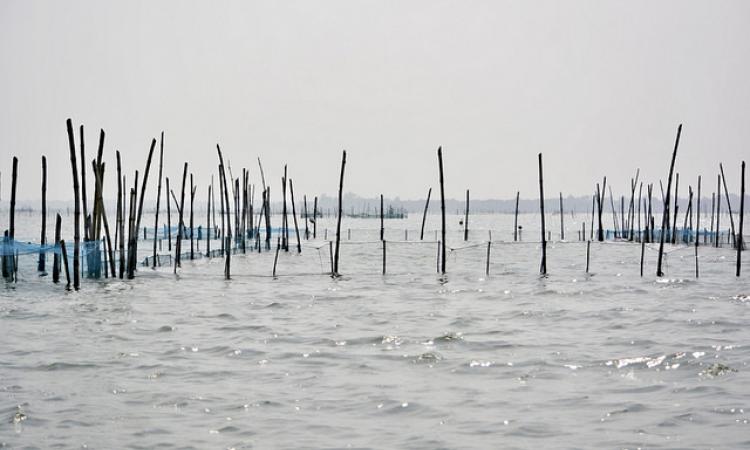
White Spot Syndrome Virus (WSSV) is a highly contagious and lethal virus especially to the Penaeid shrimp. Death is certain from three to seven days after the attack. It belongs to a new family of viruses known as Nimaviridae. The first outbreak of the virus was reported in Taiwan in 1992 and since then, it has caused economic losses in the aquaculture industry in many other countries including India.
Conventional methods of virus detection based on polymerase chain reaction (PCR), microarray methods and blot tests are available but they are either time consuming or not very accurate in small populations. Considering this situation, scientists felt the need to develop a virus detection test which could easily identify the affected shrimp without taking much time or money.
The new test involves an electrochemical sensor that uses methylene blue dye immobilised grapheme oxide and modified glassy carbon electrode. It has been developed by scientists at the Vellore Institute of Technology University in Tamil Nadu.
The research team led by Anusha Natarajan conducted a series of experiments beginning with the fabrication of the sensor and optimising its parameters. The test results on raw tissue samples have indicated a high degree of accuracy (almost four times more than conventional methods) in identifying both affected and unaffected animals. The test takes 30 to 40 minutes for giving results compared to two to three taken in other tests, according to results of the study published in the journal Scientific Reports. The research team included K.S. Shalini Devi, Sudhakaran Raja and Annamalai Senthil Kumar.
The test can be helpful to the aquaculture industry, particularly ‘crustacean’ farmers. The aquaculture industry has seen a rapid growth in the past 10 to 15 years. While most of the finfish is consumed by the domestic market, shrimps and prawns are exported. The economic and employment benefits for the suppliers in India and other Asian countries are tremendous. The timely detection of the virus can go a long way in enabling farmers to take preventive measures to save the other stock from being infected. (India Science Wire)